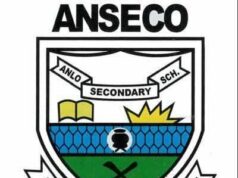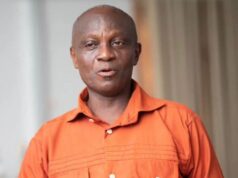Renowned undercover investigative journalist, Anas Aremeyaw Anas, has called on African journalists to rethink their work to ensure that stories they produce don’t end up as entertainment.
He said society must benefit from the work of journalists since “undercover journalism is not a tea party, but one that requires hard work, diligence and professionalism”.
At the 15th African Investigative Journalists Conference in Johannesburg, South Africa, Mr Aremeyaw Anas told participants that undercover journalism ought to be relevant to the society by helping to address situations.
The conference, organised by the University of Witwatersrand and sponsored by the Absa Group, gives African and international investigative journalists, an opportunity to learn new skills, hear about the top investigative stories and share experiences.
Some 300 participants from 30 African countries, including delegates from France , China and media scholars from the United Kingdom, participated in the programme.
Experiences
Sharing his experiences and challenges on the job at one of the sessions, Mr Aremeyaw Anas noted that the job of undercover journalists did not end by just telling a story to the public.
He encouraged them to go beyond their stories by taking actions where necessary, including if it demanded that they took legal actions to force the execution or prosecution of some corrective measures.
Citing his own petition to Ghana’s Special Prosecutor on some of the stories he had published to demand action, he said it would be a great service to one’s nation if investigative journalists adopted similar approaches in demanding action from the authorities.
Ethics
He urged participants to be mindful of ethics in the way they approached investigations to unearth wrongdoing.
He maintained that whereas people might ask questions about ethics deployed in their investigations, the relevance of the story to the society remained key in creating the ethical balance.
He also stressed the need for investigative journalists to look within their communities for everyday stories, most of which often made positive impacts than the bigger stories they might sometimes wish to tell.
The African continent, he said, was becoming accustomed to undercover journalism, “as it has proved to become an efficient model for exposing certain wrongs in the society, and journalists must take up the opportunities, get the rules right and make an impact”.
Legalities
A private legal practitioner and media lecturer at the University of Professional Studies, Accra, Mr Sammy Darko, who ran participants through the legalities of being an investigative journalist, indicated that it was important for journalists to close their traps well enough to ensure that evidence gathered in the course of their work could be admissible in court.
By: graphic.com.gh























